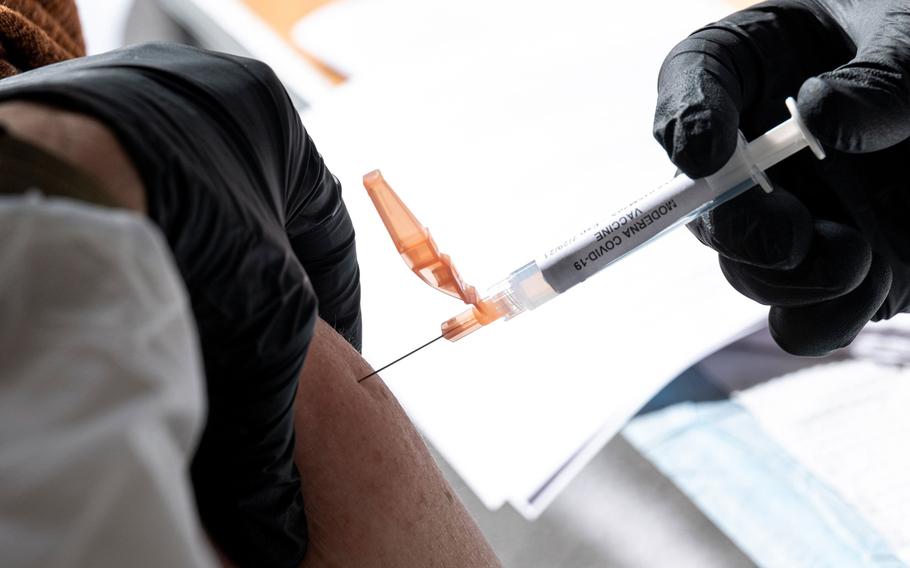
A health care worker administers a dose of the Moderna COVID-19 vaccine at a walk-up vaccination site in San Francisco on Feb. 3, 2021. (David Paul Morris/Bloomberg)
Moderna's chief executive says that the pandemic could be over in a year and that a boost in production will mean enough vaccines for "everyone on this earth" by then.
Producing enough booster shots should be possible, too, to some extent, and even babies will be able to get vaccines, Stéphane Bancel told a Swiss newspaper in an interview published Thursday. Asked whether that could spell "a return to normal" next year, he replied: "As of today, in a year, I assume."
With the vaccine industry as a whole expanding production, "enough doses should be available by the middle of next year so that everyone on this earth can be vaccinated," the French billionaire said.
Whether his predictions come true is likely to depend on narrowing the immunity gap between rich countries, which bid high in the contest to buy vaccines, and poorer countries, which rely on trickling donations.
"It is an obscenity" that some governments have hoarded, and sometimes wasted, shots while people elsewhere still wait for their first doses, U.N. Secretary General António Guterres told leaders in New York on Wednesday.
Nearly 80% of people in the world's wealthier nations already have received first doses. But, in part because of supply problems and biotech firms such as Moderna's selling most early doses to rich countries, the level of first-dose vaccination falls to 20% in poorer parts of the world.
President Joe Biden, who like other leaders has faced calls to do more, announced Wednesday that the United States would buy 500 million more doses of the Pfizer-BioNTech vaccine to donate to other countries.
Vaccination rates remain in single digits across most of Africa, whereas the United States and Britain are looking to begin offering their populations booster shots - a step that has become another symbol of pandemic inequality.
The Moderna boss says he expects that boosters will be needed every one to three years. "We will end up in a situation similar to that of the flu," he said. "You can either get vaccinated and have a good winter. Or you don't do it and risk getting sick and possibly even ending up in hospital."
The co-creator of the Oxford/AstraZeneca vaccine also predicts that COVID-19 will end up being an experience closer to the common cold. British scientist Sarah Gilbert told a webinar that the virus probably would not mutate into an even deadlier version that can skirt vaccines.
"We normally see that viruses become less virulent as they circulate more easily," she said, playing down fears that have sprung from the spread of highly contagious variants.
Other officials have not expressed that level of optimism. England's chief medical officer warned on Wednesday that unvaccinated children would end up with COVID-19 at some point as the virus continues circulating.
"They will get it sooner or later because this is incredibly infectious," Chris Whitty said. He told lawmakers that vaccines would cut the risk of infection by at least half.
"We're not going to see a situation where it just sort of stops at a certain point," he said.